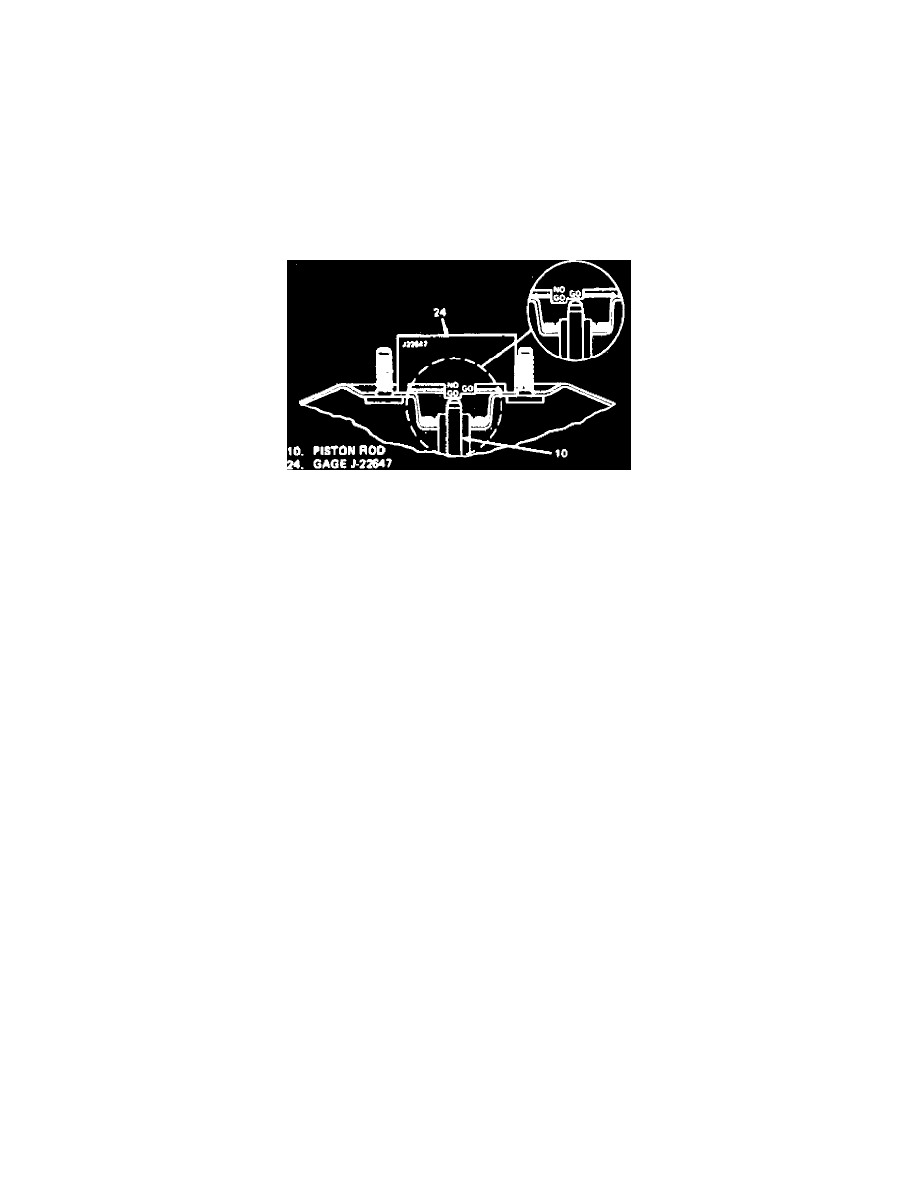Firebird V8-305 5.0L (1982)

Vacuum Brake Booster: Adjustments
Proper adjustment of the master cylinder pushrod is necessary to ensure proper operation of the power brake system. A pushrod that is too long will
cause the master cylinder piston to close off the compensating port, preventing hydraulic pressure from being released and resulting in brake drag. A
pushrod that is too short will cause excessive brake pedal travel and cause groaning noises to come from the booster when the brakes are applied. A
properly adjusted pushrod that remains assembled to the booster with which it was matched during production should not require service adjustment.
However, if the booster, master cylinder or pushrod are serviced, the pushrod may require adjustment.
There are two methods that can be used to check for proper pushrod length and installation: the gauge method and air method. Usually, if the power
unit pushrod requires an adjustment the Power Unit Repair Kit for the unit being serviced includes a gauge. The gauge measures from the end of the
pushrod to the power unit shell.
GAUGE METHOD
Fig. 2 Master cylinder pushrod adjustment. Delco-Moraine type vacuum booster
Delco-Moraine Type
On these models, the master cylinder pushrod lengthen is fixed, and length is usually only checked after the unit has been overhauled.
1.
Assemble booster unit and install pushrod, ensuring that pushrod is fully seated.
2.
Position go/no go gauge furnished in repair kit over pushrod as shown in Fig. 2
3.
If pushrod height is not within limits of gauge, install service adjustable pushrod and adjust rod to obtain correct height.
4.
Install power unit and check adjustment, ensuring that master cylinder compensating port is open with engine running and brake pedal released.
AIR METHOD
1.
Be sure master cylinder attaching nuts are tight.
2.
Remove master cylinder filler cap.
3.
With brake released, force compressed air into the hydraulic outlet of the master cylinder. Regulate air pressure to a value of approximately 5 psi,
to prevent spraying brake fluid from master cylinder. Care must be taken not to allow brake fluid to contact painted surfaces of vehicle, skin or
eyes, as damage or personal injury will result.
4.
If air passes through the compensating port, which is the smaller of the two holes in the bottom of the master cylinder reservoir, the adjustment is
satisfactory.
5.
If air does not flow through the compensating port, adjust the pushrod as required, either by means of the adjustment screw (if provided) or by
adding shims between the master cylinder and power unit shell until the air flows freely.
6.
Reconnect brake lines and bleed system.
